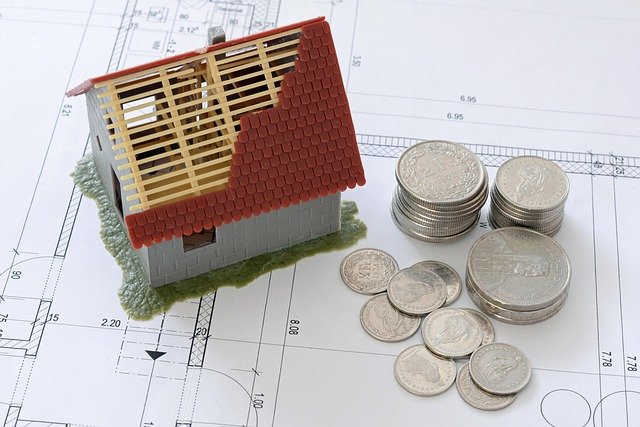Search foreclosed homes
Searching for foreclosed homes can be an exciting opportunity for potential homebuyers and investors alike. These properties, which have been repossessed by lenders due to the previous owner's inability to keep up with mortgage payments, often come with attractive price tags. However, navigating the world of foreclosures requires knowledge, patience, and a keen eye for potential. This article will guide you through the process of searching for foreclosed homes, highlighting the benefits, risks, and strategies to help you make informed decisions in the UK property market.

What are foreclosed homes and how do they differ?
Foreclosed homes are properties that have been repossessed by lenders, typically banks or building societies, when the homeowner fails to meet their mortgage obligations. These properties differ from standard listings in several ways. Firstly, they are often sold at below-market value, as lenders aim to recoup their losses quickly. Secondly, the purchase process can be more complex, involving auctions or specialised estate agents. Lastly, foreclosed homes may require more extensive repairs or renovations, as they might have been neglected during the foreclosure process.
Where can I find local foreclosed homes for sale?
Finding local foreclosed homes for sale requires a bit of detective work, but there are several resources available. Start by checking online property portals that specialise in foreclosures and distressed properties. Many mainstream property websites also have filters for bank-owned or repossessed homes. Local estate agents, particularly those with experience in foreclosures, can be valuable sources of information. Additionally, keep an eye on local newspapers and property auction listings, as these often feature foreclosed properties.
What are the benefits of buying foreclosed homes?
The primary benefit of buying foreclosed homes is the potential for significant savings. These properties are often priced below market value, allowing buyers to purchase homes they might not otherwise afford. For investors, foreclosures can present lucrative opportunities for renovation and resale. Moreover, buying a foreclosed home can sometimes mean less competition, especially if the property requires work that other buyers aren’t willing to undertake. This can be particularly advantageous in competitive housing markets where bidding wars are common.
What risks should I be aware of when considering foreclosures?
While the potential benefits are attractive, it’s crucial to be aware of the risks associated with foreclosed homes. These properties are typically sold “as-is,” meaning the buyer is responsible for any repairs or renovations needed. Hidden damages or structural issues can be costly to fix. Additionally, the legal process of buying a foreclosed home can be more complex, with potential title issues or liens against the property. There’s also the risk of overpaying if you don’t thoroughly research the property’s true value and the cost of necessary repairs.
How can I profit from bank-owned foreclosure deals?
Profiting from bank-owned foreclosure deals requires a strategic approach. Start by thoroughly researching the local property market to understand true property values. Develop relationships with real estate agents specialising in foreclosures to gain early access to listings. Be prepared to move quickly when a good opportunity arises, as attractive foreclosures can sell fast. Consider the potential for renovation and resale, factoring in all costs including purchase price, repairs, taxes, and selling expenses. Remember, the key to profiting is buying at the right price and having a clear plan for the property, whether it’s a quick flip or a long-term rental investment.
How do I unlock access to exclusive foreclosure listings?
Unlocking access to exclusive foreclosure listings can give you a competitive edge in the market. Many banks and building societies have REO (Real Estate Owned) departments that manage their foreclosed properties. Building relationships with these departments or the estate agents they work with can provide early access to listings. Consider joining local property investor groups or online forums where members share information about foreclosure opportunities. Some websites offer subscription services that provide up-to-date foreclosure listings, often before they hit the public market. Additionally, attending property auctions can expose you to foreclosed homes that might not be listed through traditional channels.
| Service Provider | Offering | Key Features |
|---|---|---|
| RightMove | Online Property Portal | Filters for repossessed properties, wide UK coverage |
| Auction House UK | Property Auction Service | Regular auctions featuring foreclosed homes, online and in-person options |
| EIG Property Auctions | Online Auction Platform | Access to multiple auction houses, alerts for new listings |
| Property118 | Property Investment Network | Forums and resources for finding foreclosure opportunities |
| Savills | Estate Agent | Specialised department for bank repossessions and distressed sales |
Prices, rates, or cost estimates mentioned in this article are based on the latest available information but may change over time. Independent research is advised before making financial decisions.
In conclusion, searching for foreclosed homes can be a rewarding endeavour for those willing to put in the time and effort. While the potential for savings and profit is significant, it’s essential to approach foreclosure purchases with caution and thorough research. By understanding the process, risks, and strategies involved, you can navigate the foreclosure market more effectively and potentially find your next property investment or dream home at a bargain price.
The shared information of this article is up-to-date as of the publishing date. For more up-to-date information, please conduct your own research.




